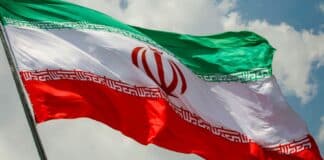A powerful new exhibit at the Illinois Holocaust Museum is shedding light on a dark but often overlooked chapter of American history—the forced incarceration of Japanese Americans during World War II.
“Resilience – A Sansei Sense of Legacy” explores the experiences of thousands of families, primarily from the West Coast, who were forcibly relocated and imprisoned under Executive Order 9066. One of the most striking installations features tags bearing the names of individuals who were sent to internment camps—a chilling reminder that each person was reduced to a number.
Dr. Roy Wesley, who was an infant when his family was forcibly removed from their home in Portland, Oregon, shares his story in the exhibit. His father, an ophthalmologist, lost his practice, and his entire family was sent to a camp in Idaho.
“My parents, my grandparents—my family were all interned at the same time under Executive Order 9066, which was a continuation of the Enemy Alien Act of 1798,” said Dr. Wesley. “This was signed during wartime, but today is not wartime.”
Dr. Wesley has dedicated much of his life to preserving the history of Japanese American incarceration, working with the Japanese American Service Committee (JASC) to ensure that future generations understand the tragedies his family and thousands of others endured.
The exhibit also includes artwork, photographs, videos, and a quilted kimono created by JASC members to honor those imprisoned.
“They put the quilt together to memorialize the people who were in the incarceration camps—they were prisoners of the U.S. government,” Dr. Wesley emphasized.
Dr. Wesley hopes visitors will reflect on this painful yet crucial piece of American history. He draws a connection between past injustices and the need to remain vigilant in defending freedom and civil liberties today.
“It’s very timely, and it’s something that people should pay attention to,” he said. “As the Illinois Holocaust Museum reminds us—‘Never forget, always remember.’ If we forget this period of time, worse atrocities will happen in the future.”
The exhibit runs through June 1 at the Illinois Holocaust Museum in Skokie.





